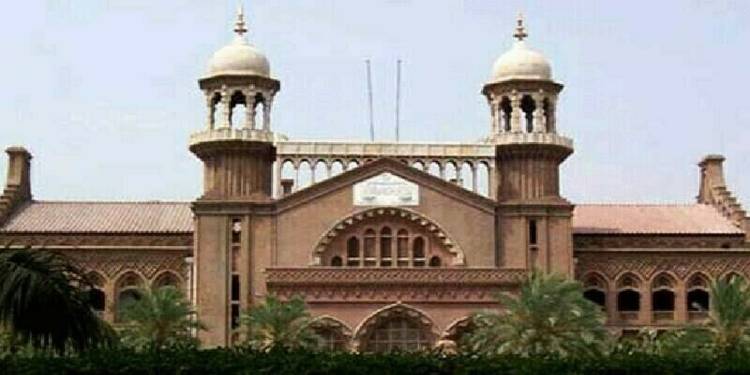
A ruling by the Lahore High Court (LHC) that forbade the transfer of land to the Pakistan Army for corporate farming on a 20-year lease was suspended on Monday by the same court.
The decision was made while a plea from the Punjab government asking for the overturning of a decision by the single-member bench of the LHC was heard by a two-member bench led by Justice Ali Baqar Najafi.
The Punjab government insisted that the complainants, Lahore-based lawyers, were not parties who were harmed and made the point that it is not the role of the court to oversee agricultural policy.
The LHC's single-member bench, headed by Justice Abid Hussain Chattha, had in June declared illegal the leasing of land to the Pakistan Army for corporate farming, observing that the armed forces had no constitutional or legal mandate to indulge in corporate farming.
Additionally, Justice Chattha stated in a written decision that the Punjab caretaker administration was not authorized by the constitution to provide land for corporate farming.
For a corporate agricultural farming project, the Punjab government announced the allocation of more than 45,267 acres of Punjabi land to the army in three districts: Bhakkar, Khushab, and Sahiwal.
The allocation occurred after the Board of Revenue in Punjab received a letter from the Pakistan Army's director general of strategic projects on February 8 asking for permission to allocate up to 1 million acres of state land in Punjab for "corporate agriculture farming."
In the letter, the Pakistan Army stated that it has the experience to develop "waste barren lands." The Pakistan Army noted rising food and oil costs as a significant problem for Pakistan's economy and agricultural industry.
The military suggested that 10,000 to 15,000 acres of irrigated land be released for the project right now, followed by 100,000 acres by March 1 and the remaining one million acres by April.
In a press conference held on April 25, DG ISPR Major General Ahmed Sharif Chaudhry was questioned about the military's attempt to get public property for corporate farming.
He stated that both developed and developing nations had used their militaries in one way or another to advance their agricultural industries, but added that the provincial and federal governments had the final say on what role the military could play in making the lands more cultivable.
The decision was made while a plea from the Punjab government asking for the overturning of a decision by the single-member bench of the LHC was heard by a two-member bench led by Justice Ali Baqar Najafi.
The Punjab government insisted that the complainants, Lahore-based lawyers, were not parties who were harmed and made the point that it is not the role of the court to oversee agricultural policy.
The LHC's single-member bench, headed by Justice Abid Hussain Chattha, had in June declared illegal the leasing of land to the Pakistan Army for corporate farming, observing that the armed forces had no constitutional or legal mandate to indulge in corporate farming.
Additionally, Justice Chattha stated in a written decision that the Punjab caretaker administration was not authorized by the constitution to provide land for corporate farming.
For a corporate agricultural farming project, the Punjab government announced the allocation of more than 45,267 acres of Punjabi land to the army in three districts: Bhakkar, Khushab, and Sahiwal.
The allocation occurred after the Board of Revenue in Punjab received a letter from the Pakistan Army's director general of strategic projects on February 8 asking for permission to allocate up to 1 million acres of state land in Punjab for "corporate agriculture farming."
In the letter, the Pakistan Army stated that it has the experience to develop "waste barren lands." The Pakistan Army noted rising food and oil costs as a significant problem for Pakistan's economy and agricultural industry.
The military suggested that 10,000 to 15,000 acres of irrigated land be released for the project right now, followed by 100,000 acres by March 1 and the remaining one million acres by April.
In a press conference held on April 25, DG ISPR Major General Ahmed Sharif Chaudhry was questioned about the military's attempt to get public property for corporate farming.
He stated that both developed and developing nations had used their militaries in one way or another to advance their agricultural industries, but added that the provincial and federal governments had the final say on what role the military could play in making the lands more cultivable.

